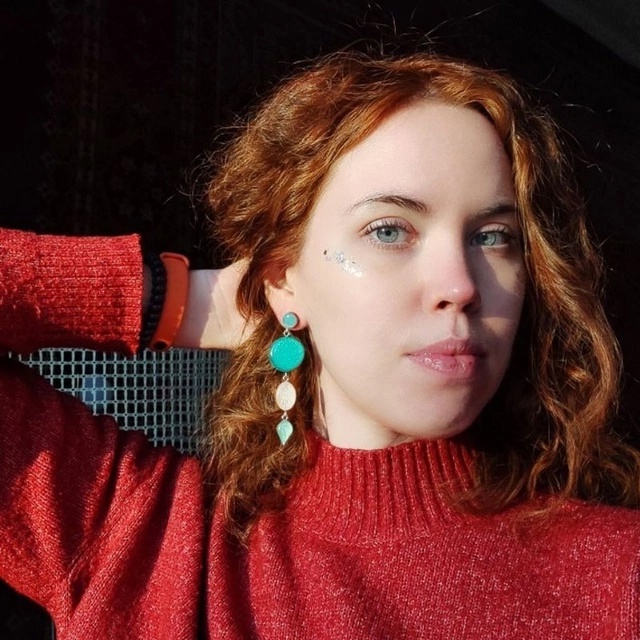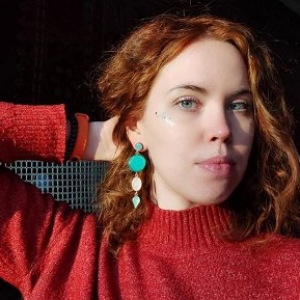Sociology, which transforms everyday life, or how studying the opinions of the city’s citizens and visitors can affect the comfortable urban environment appear. Maria Korsun, Senior Lecturer at the Faculty of Sociology, can tell you a lot about this. Her journey into science is a story about inspiration, caring for people, and endless love for learning.

Science as vocation
Today, Maria Aleksandrovna is engaged in mental cartography of Samara, studying how the urban environment affects a person. Her research covers a wide range of themes, from architectural solutions to the sounds and smells that shape our perception of the city.
"I’ve always wondered how the urban environment affects a person. The environment consists of architectural and colour solutions, sounds, smells - everything that surrounds us in the city", notes the sociologist.
Her work has not only scientific value, but also practical one. She helps understand how to make urban space more comfortable for living, and this is her main mission.
"I want science to become closer to people, so that everyone could feel that our research concerns their lives. This is my main goal", says Maria Korsun.
The beginning of the path: the example of teachers
Maria Korsun recalls that her choice of profession was largely determined by the example of female teachers who not only taught, but also inspired. Among them are Nina Petrovna Shchukina and Bela Anatolyevna Nikitina, teachers of her graduate department. According to Maria Aleksandrovna, it was they who laid the foundations of her professional worldview and showed how important it is to be not just a bearer of knowledge, but also a guide who can captivate students.
In her third year, she plunged into working on a serious research project, and this teamwork became a powerful incentive for her to see her future in a scientific career.
"When in your third year you are offered a job in a real grant with research on an interesting topical theme, it inspires very much", recalls Maria.
At that time, the Department of Sociology of the Social sphere and Demography was engaged in researching the citizens’ life quality and developing practices to improve it. In her scientific work, Maria saw not only a research component, but also an opportunity for changing the world.
Inspiration in everyday life
The researcher is sure that the main secret of the balance between work and life is the environment that shares your values.
"When you do science, boundaries between work and personal life blur. As a sociologist, you unconsciously seek insights for future research in everything you encounter".
Maria Aleksandrovna is also inspired by cooking. She admits that in the process of creating another edible masterpiece, her research brain does not shut down: she can analyze cultural and social aspects of gastronomic practices, how family memory is transmitted through culinary traditions.
"I love cooking, and it helps me distract myself. But even here, I’m starting to think about how the social structure affects recipes, taste perception, and the gastronomic infrastructure in general", says Maria Aleksandrovna.
As you know, the passion for traveling and exploring new places is about not only recreation, but also expanding horizons, as well. New cities become objects of study, opening up new ideas for research. She cannot just enjoy landscapes or architecture without analyzing them, “You’re always looking for meanings, even in the most ordinary things. Then these observations become part of your lectures or research”.
Science as dialogue
Maria Korsun enthusiastically participates in conferences and public lectures, and willingly shares results of her research with large audience. She believes that it is important to talk about research in an accessible way, for arousing people’s interest and showing how science can be useful in everyday life.
"The most valuable thing is not just to show results, but to enter into a dialogue with the audience, to hear questions and opinions from the listeners. It helps see new prospects and inspires for further researching".
Maria admires popularizers of science, who are able to talk about complex things in simple language. Among her idols are researchers who give public lectures and share their knowledge through social media. Among them is the famous anthropologist Stanislav Drobyshevsky, whose presentation of material and ability to interact with the audience arouse her sincere admiration; Polina Kolozaridi, an expert in digital humanities, whose work and publications in the Telegram channel Maria Aleksandrovna considers a role model for conceptualizing and representing scientific ideas.
"I really like how modern scientists talk about their research in a way that it is interesting and understandable to everyone. This is what I strive for in my work", she notes.
It’s okay to make mistakes
Maria Aleksandrovna advises students and postgraduates starting their career in science not to be afraid of trying new things and making mistakes, "Don’t be afraid of making mistakes, accept yourself and your feelings in the research process. Your personal experience and feelings are part of your story and your growth".
She emphasizes that science is not only publications and citation indexes, but also live communication with colleagues, joint projects, not only theories, but also a living history that is being written here and now.
Her life is proof that science can be not only a profession, but also a vocation that inspires and changes the world for the better.
Elena Suprun.
Photo from Maria Korsun’s archive
